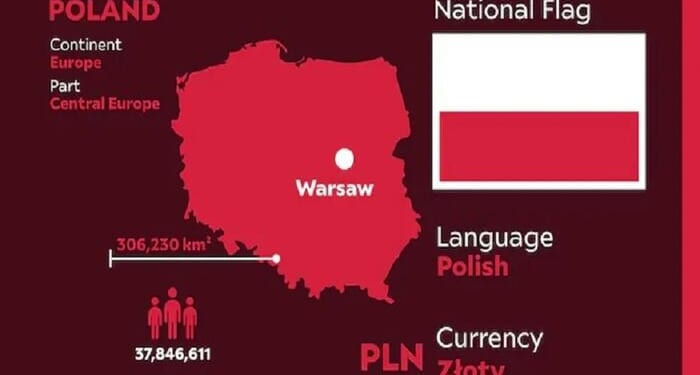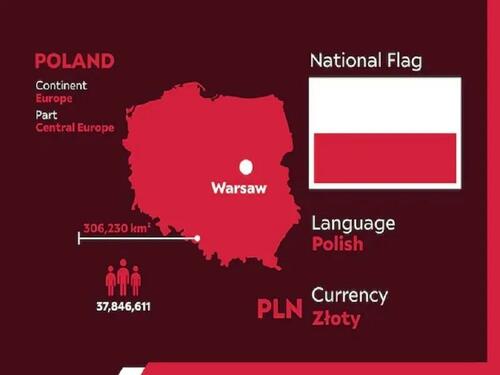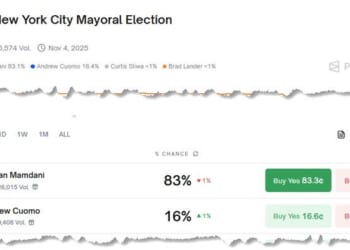Authored by Andrew Korybko via Substack,
Its continued hegemony over Central & Eastern Europe threatens to further erode Poland’s already limited sovereignty, but this can be shattered with US support, though at the cost of subordinating Poland to Trump 2.0’s envisaged “Pax Americana” that would also impose limits on its sovereignty.
“The AfD’s Co-Leader Declared That Poland Could Become A Threat To Germany” earlier this month, the rationale of which was explained in the preceding analysis, but it’s also true that some in Poland regard Germany as threat to their country as well.
Whereas the perception that some Germans have of Poland as a threat is derived from it trying to shatter Germany’s hegemony over Central & Eastern Europe (CEE), the perception that some Poles have of Germany as a threat is derived from that selfsame hegemony.
The grey cardinal of Poland’s conservative-nationalist opposition (“Law & Justice” or PiS per its Polish acronym), Jaroslaw Kaczynski, has been among the most outspoken voices about this. He’s spoken on this subject for years, even declaring right before the special operation that Germany’s EU federalization plans are an attempt to build a “Fourth Reich”. Kaczynski recently reaffirmed that Germany nowadays leads “a kind of new empire” and, together with France, “want[s] to take Poland’s sovereignty away.”
Prime Minister Donald Tusk is “a German agent” tasked for fulfilling this plot, he claimed in late December 2023 after PiS lost control of the Sejm following its defeat in that fall’s elections, but Trump 2.0’s envisaged “Pax Americana” can possibly save Poland according to his latest assessment.
He said in late September that “Pax Americana would be global but it would allow for the existence of sovereign states, including a sovereign Poland, constrained only by demands of joint defence within NATO.”
This aligns with the insight shared in the earlier cited analysis about the AfD co-leader’s views on Poland, which drew attention to how the US is helping Poland shatter German hegemony in CEE in order to facilitate the creation of a Polish-led wedge (the “Three Seas Initiative”, 3SI) between Germany and Russia. For Poland to achieve its full geostrategic potential in this regard, both in furtherance of its own and the US’ shared interests, PiS must regain control of the Sejm during fall 2027’s next elections.
That would almost certainly necessitate allying with the Confederation party, which leads Poland’s populist-nationalist opposition and whose chief Slawomir Mentzen came in third place during the first presidential round with 14.81% of the vote, but Mentzen conditioned this on PiS’ top leaders resigning. Other than Kaczynski, he demanded the departure of former Prime Minister Mateusz Morawiecki, but their egos (especially Kaczynski’s) might prevent that despite it arguably being for the greater good.
In any case, Poland’s sovereignty can only enduringly be defended vis-à-vis Berlin-led Brussels by rallying CEE to collectively oppose the EU’s federalization plans, which can be advanced through transforming the US-backed 3SI into a political platform to this end. Poland must also continue reviving its lost Great Power status in parallel with replacing Hungary’s role as a continental hub for conservative-/populist-nationalist movements, which requires regaining control of the Sejm, all of which with US support.
Polish independence activists fought “for our freedom and yours” during the Partition period as they famously proclaimed, especially when they participated in independence struggles abroad, with their modern struggle against German hegemony over CEE representing the spiritual successor of that cause. Its success is also far from certain, but unlike back then, Poland can count on US support but at the cost of subordinating itself to “Pax Americana” with no chance of achieving full sovereignty under this order.
Loading recommendations…


















